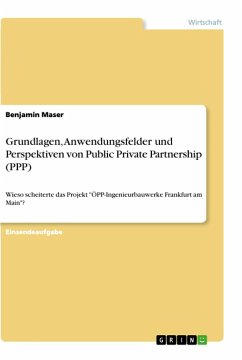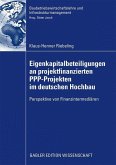The research aim of this scholarly work was the economic assessment of PPP Public-Private Partnership (PPP) projects in Central Eastern Europe, based on a Hungarian research sample. The primary theoretical reference is a basic business management approach, Shareholder Value management. Key questions: Is the private party of a PPP project able to increase shareholder value? May this intention be harmonised with that of the public party representing public interest? These questions are understood to be the clues for sustainable PPP projects. The work includes the qualitative analysis on the interpretations of PPP in the general public as reflected by press articles, as well as the analysis of the objectives of PPP as reflected by the key stakeholders of selected projects. The analysis resulted in the establishment of a typology of PPP projects based on factors of success. Furthermore, the challenges to success in Hungarian projects were explored and analysed. Recommendations for practical actions and institutional changes that aim the improved effectiveness of Central Eastern European PPP projects conclude the work.
Bitte wählen Sie Ihr Anliegen aus.
Rechnungen
Retourenschein anfordern
Bestellstatus
Storno








